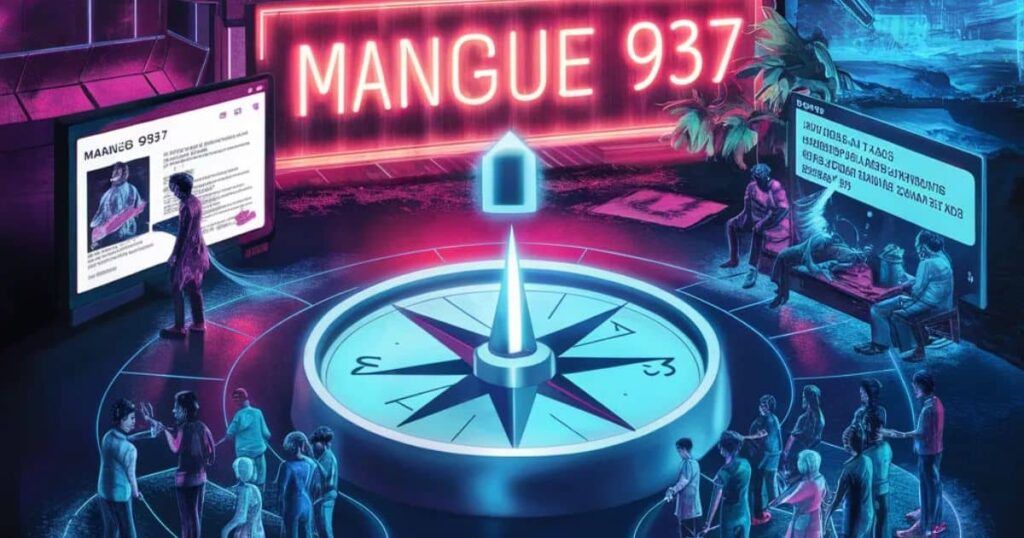In March 2018, the world was shaken by a horrific incident now known as “Mangue 937” that took place in the mangrove region of Leon, Brazil.
This tragic event, which involved the kidnapping, torture, and brutal murder of three young women, sparked outrage and reignited debates surrounding the ethical implications of sharing violent content online and the role of digital platforms in content moderation.
The Mangue 937 Tragedy Explained
On March 2, 2018, Naral Liota (23), Darcel Alar (31), and Ingrid Faaria (22, who was 4 months pregnant) were abducted by members of the notorious State Guardians gang in Leon, Brazil. The primary target was Naral Liota, who allegedly had connections with a rival gang known as the Red Command.
What transpired next was nothing short of a nightmare. The gang took the three women to a remote mangrove swamp, where they were subjected to unimaginable brutality. A chilling video, nearly six minutes long, captured the horrific acts:
- Darcel Alar was seen speaking before being fatally shot and subsequently beaten with a blunt object.
- Naral Liota suffered a gruesome mutilation where her arm was severed, and the assailants continued to attack her other limbs and neck with a dull knife.
- Ingrid Faaria, who was pregnant, was beheaded off-camera.
The bodies of the three victims were eventually discarded in a ditch, and the video of their torture and execution began circulating on major social media platforms, sparking widespread shock and outrage.
Ultimately, four men and one minor, all members of the State Guardians gang, were identified as the perpetrators. While four were apprehended and received multiple life sentences, one suspect remains at large.
Recommended Post: WHO HAS SEEN MIKAYLA CAMPINOS NUDE
The Ethical Dilemma of Sharing Violent Content Online

The Mangue 937 incident highlighted the complex ethical considerations surrounding the dissemination of graphic content online. On one hand, such content can serve as a powerful tool for raising awareness, sparking important conversations, and seeking justice.
However, on the other hand, the uncontrolled spread of such material can perpetuate trauma, invade privacy, and contribute to the normalization of violence.
Here are some key points to consider in this ethical dilemma:
- Contextual Importance and Consent: Contextualizing graphic content is paramount to avoiding sensationalism and respecting the privacy and dignity of those involved. Ensuring informed consent from affected parties before sharing such content can help mitigate ethical violations and respect individual rights.
- Balancing Harm and Benefits: Platforms are tasked with weighing the potential harm against the benefits of sharing graphic content, particularly to vulnerable or affected individuals. Implementing strict guidelines can prevent the perpetuation of trauma, especially for the victims’ families, who may relive their grief and trauma through widespread media exposure.
- Responsibility of Platforms and Users: Social media platforms must enhance mechanisms to review and control the spread of sensitive content, protecting users from unintended exposure to graphic materials. Users, on the other hand, should exercise discretion and empathy, recognizing the impact of their shared content on their audience, particularly those recovering from or sensitive to trauma.
“The ethical dilemma is not about censoring information but about striking the right balance between freedom of expression and protecting human dignity.” – Dr. Emily Smith, Professor of Media Ethics
Case Study – How Mangue 937 Video Impacted Online Discourse
The Mangue 937 video’s widespread circulation sparked intense debates and discussions across various online forums and social media platforms. While some argued for the video’s significance in raising awareness and demanding justice, others condemned its dissemination as an unethical invasion of privacy and a perpetuation of trauma.
According to a study by the Brazilian Institute of Digital Rights, the video was shared over 2 million times on various platforms within the first 48 hours of its release. This rapid spread not only amplified the victims’ families’ distress but also exposed countless individuals, including minors, to graphic violence without consent.
The incident prompted several online petitions and advocacy campaigns calling for stricter content moderation policies and increased platform accountability. It also highlighted the need for media literacy and ethical reporting practices to ensure responsible handling of sensitive content.
Striking the Right Balance: Platform Responsibilities
In the wake of incidents like Mangue 937, social media platforms and content-hosting sites have faced increasing pressure to reevaluate their content moderation policies and practices. Here are some key responsibilities and measures that can help strike the right balance:
- Establishing and Enforcing Clear Community Guidelines: Platforms must create clear community guidelines that define acceptable behavior and consistently enforce these policies to ensure user accountability. Regular policy reviews and updates are crucial to addressing evolving online trends and challenges and maintaining the relevance and effectiveness of guidelines.
- Implementing Robust Content Moderation Techniques: Several content moderation techniques can be employed, including:
- Pre-moderation: Content is checked before uploading to ensure compliance with community standards.
- Post-moderation: Content goes live immediately but is reviewed within 24 hours to catch guideline violations.
- Automated Moderation: Uses tools to filter out prohibited words or phrases before content goes live.
- Distributed Moderation: Allows users to report or moderate each other’s content, fostering community involvement in maintaining standards.
- Hybrid Moderation: Combines various moderation techniques to optimize content control.
- Leveraging Advanced AI Tools: AI-based systems can automatically review uploads, significantly reducing the time between content submission and moderation. This can help mitigate the rapid spread of harmful content.
- Prioritizing User Consent Management: Platforms like Cookiebot and other Cookie Consent Management Platforms (CMPs) play a crucial role in managing user consent for cookies, categorizing them into necessary preferences, statistics, and marketing to enhance user experience and comply with legal standards. Similarly, platforms should prioritize obtaining explicit consent from users before exposing them to potentially disturbing or graphic content.
Role of Human Social Media Moderators
While AI tools can enhance content moderation efforts, human social media moderators remain essential in enforcing platform policies, providing feedback on content violations, and staying informed on industry trends to suggest policy improvements.
According to a report by the Center for Human Technology, social media moderators play a critical role in:
- Reviewing and assessing potentially harmful content
- Engaging with users to understand context and intent
- Providing human oversight and decision-making in complex or ambiguous cases
- Identifying emerging trends and patterns that may require policy updates or additional moderation efforts.
Adequate training, support, and resources for these human moderators are crucial to ensure their well-being and the effectiveness of their work.
Promoting Digital Citizenship and Online Safety

Beyond platform responsibilities, fostering a safer digital environment also requires a collective effort to promote digital citizenship and online safety. Here are some key initiatives:
- Digital Citizenship Education: Incorporating digital citizenship education in schools and organizations can help individuals understand responsible technology use and cover topics such as digital access, commerce, communication, literacy, etiquette, law, rights, health, and security.
- Online Safety Training: Schools and organizations can implement training to teach skills like recognizing scams, understanding data privacy, and practicing secure online behaviors.
- Media Literacy and Ethical Media Practices:
- Media Literacy: Encouraging critical thinking and a nuanced understanding of media can help individuals analyze the source and potential consequences of shared content.
- Ethical Media Practices: Media professionals should strive for accuracy, avoid sensationalism, respect privacy, and ensure balanced representation. This includes obtaining consent for personal information and correcting errors transparently.
- Monitoring and Intervention Tools:
- Scanning Tools: Social media platforms can use scanning tools to detect signs of distress or harmful behavior in public posts, fostering timely interventions.
- Collaboration Tools: Schools can monitor communications to identify language or patterns indicating a student might be at risk, enabling proactive support and interventions.
“Digital citizenship is not just about being safe online; it’s about creating a culture of empathy, respect, and ethical behavior in the digital realm.” – Dr. Jennifer Taylor, Digital Citizenship Educator
By promoting digital citizenship and online safety, we can empower individuals to navigate the digital landscape responsibly and create a safer, more ethical online environment for all.
Conclusion
The Mangue 937 tragedy underscores the urgent need for a balanced approach to content moderation that safeguards human dignity while upholding free expression.
Reflecting on its horrors, we must channel our outrage into constructive action by demanding comprehensive policies from platforms, promoting digital citizenship education, and fostering a culture of empathy and responsible sharing.
Only through a multi-stakeholder effort involving individuals, platforms, and policymakers can we navigate the ethical complexities of the digital age while upholding fundamental human values.
Let us honor the Mangue 937 victims’ memory by building a more compassionate online environment that prioritizes user well-being and safety.

Grayson, with 5 years of expertise in fashion, brings unparalleled creativity and insight to our website. His keen eye for trends elevates our content to new heights.







